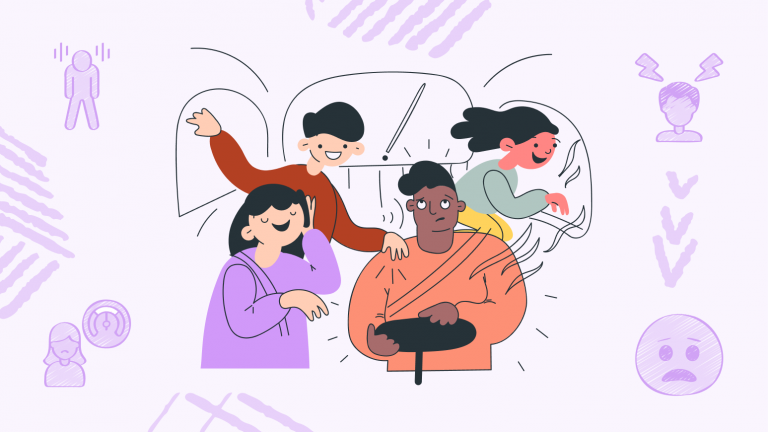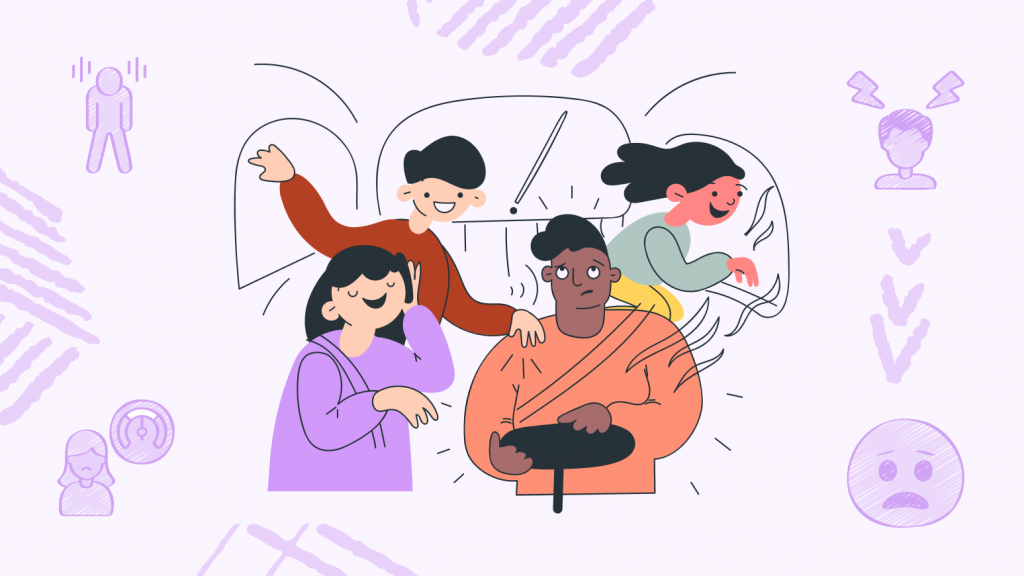Navigating the Tides of Conformity
Feeling pressured to conform to what is culturally acceptable is a multifaceted challenge that pervades various aspects of life. It begins with societal expectations, which encompass a wide range of norms, values, and behaviors that society deems appropriate or desirable.
These expectations can come from family, peers, media, educational institutions, and broader cultural influences. Individuals often internalize these expectations from a young age, leading to a constant battle between staying true to themselves and conforming to external standards.
The struggle intensifies as individuals navigate different social contexts, such as work environments, social gatherings, and online communities. There’s a constant pressure to fit in, meet societal standards of success, appearance, behavior, and adhere to prevailing trends.
This pressure can create internal conflict, self-doubt, anxiety, and a sense of disconnection from one’s authentic identity. The fear of rejection, judgment, or social exclusion further exacerbates this struggle, leading many to compromise their individuality in pursuit of acceptance and validation.
Why We Bend to Societal Expectations
The pressure to conform operates through a complex interplay of neurological, psychological, and social factors, shaping individuals’ behaviors, emotions, and perceptions.
Conforming to societal norms triggers a series of neurological responses within the brain. When individuals engage in conforming behavior, their brain’s reward system is activated. This activation leads to the release of neurotransmitters such as dopamine and serotonin, which are associated with feelings of pleasure, satisfaction, and reward. The brain perceives conforming as a positive experience, reinforcing the behavior and increasing the likelihood of repetition in similar situations.
Moreover, neuroplasticity—the brain’s ability to reorganize itself based on experiences—plays a significant role in reinforcing conformity. Over time, repeated experiences of conforming can lead to the formation of neural pathways that strengthen the association between conforming behavior and positive emotions. This neural reinforcement makes it increasingly difficult for individuals to deviate from societal norms or express their authentic selves.
Additionally, the fear of social rejection or exclusion activates the brain’s threat response system. This response triggers the release of stress hormones such as cortisol, leading to heightened stress levels and emotional distress. The brain interprets social rejection as a threat to survival, further reinforcing the inclination to conform in order to avoid potential social consequences.
The pressure to conform exerts profound psychological effects on individuals, influencing their thoughts, beliefs, and self-perceptions. One key psychological mechanism at play is social comparison, where individuals evaluate themselves based on others’ standards or achievements. This comparison can lead to feelings of inadequacy, self-doubt, and a desire to meet or exceed societal expectations.
Furthermore, the fear of social rejection or exclusion contributes to the pressure to conform. Human beings are inherently social creatures, and social acceptance is often linked to feelings of safety, belonging, and well-being. The prospect of being ostracized or judged negatively by others activates the brain’s threat response, leading to increased stress levels and anxiety.
Cognitive biases also play a role in perpetuating conformity. The bandwagon effect occurs when individuals adopt certain behaviors or beliefs because they perceive others doing the same, regardless of their personal convictions. Groupthink, on the other hand, refers to the tendency of individuals to prioritize group harmony or consensus over critical thinking or individual dissent. These cognitive biases can reinforce conformity and discourage independent thinking or expression of diverse perspectives.
The pressure to conform is deeply rooted in societal and cultural norms, values, and expectations. From a young age, individuals are socialized to adhere to specific gender roles, cultural practices, and behavioral norms that are deemed acceptable by their communities. Cultural hegemony, or the dominance of a particular cultural worldview, sets the standards for what is considered “normal” or “acceptable,” shaping individuals’ beliefs and behaviors.
Media representations, advertising, and social media platforms further shape societal norms and influence individuals’ perceptions of what is desirable or socially acceptable. The portrayal of idealized lifestyles, body images, and success stories can create unrealistic expectations and fuel the pressure to conform to these standards.
Subscribe to newsletter
Get your Gut Health Starter Guide right now.
Elevate your Tuesdays with practical, science-backed wisdom propelling you forward on your gut health journey.

Practical Steps for Authentic Living
Breaking free from the pressure to conform requires a deliberate and mindful approach. Here are detailed steps individuals can take to embrace their individuality:
- Self-awareness: Begin by exploring your core values, beliefs, and aspirations. Reflect on how societal expectations may be influencing your thoughts, behaviors, and decisions.
- Identify triggers: Identify specific situations, environments, or people that trigger the urge to conform. Understanding your triggers can help you develop strategies to navigate them effectively.
- Challenge limiting beliefs: Examine any limiting beliefs or negative self-talk that hinder your ability to express yourself authentically. Replace these beliefs with empowering and affirming thoughts.
- Set boundaries: Establish clear boundaries that align with your values and priorities. Learn to say no to activities, relationships, or expectations that compromise your authenticity and well-being.
- Practice self-compassion: Be kind to yourself and embrace imperfections. Treat yourself with the same compassion and understanding you would offer to a friend facing similar challenges.
- Seek supportive environments: Surround yourself with people who accept and appreciate you for who you are. Cultivate relationships based on mutual respect, authenticity, and shared values.
- Take intentional actions: Start incorporating small acts of self-expression into your daily life. This could include pursuing hobbies, expressing your opinions, or setting personal goals aligned with your values and aspirations.
Triumphs Beyond Conformity
Consider the story of Emily, a young professional who struggled with conforming to societal expectations in her career and personal life. Through self-awareness, setting boundaries, and practicing self-compassion, Emily embarked on a journey of embracing her individuality. As she prioritized authenticity and aligned her actions with her values, Emily experienced a profound sense of freedom, confidence, and fulfillment. Her relationships improved, and she felt more connected to her true self, leading to a higher quality of life and greater happiness.
In conclusion, the pressure to conform is a complex phenomenon rooted in neurological, psychological, and societal influences. By understanding these mechanisms and implementing practical strategies, individuals can break free from conformity and embrace their unique identities, leading to a more fulfilling and authentic life.


















